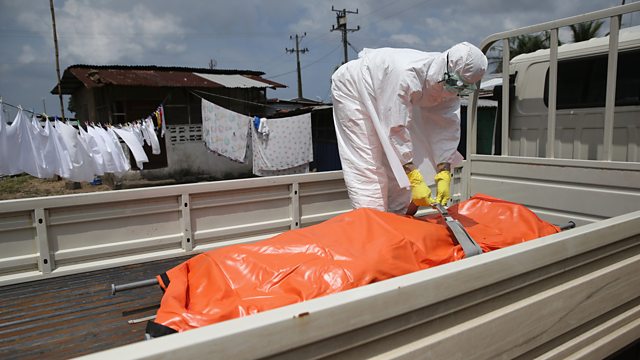Ebola Virus Returns to Liberia
Ebola virus returns to Liberia; Solar plane crossing the Pacific; Sex-changing dragons; Brain maps
Almost two months after the announcement that Liberia was officially free of Ebola, the discovery of the body of a teenage boy who died from the virus, and reports of additional cases, mean that the virus has returned. Identifying where the virus came from will be crucial to efforts to eliminate the risk of further cases. Genetic profiling of the virus, on the ground in the most affected areas, using the latest technologies, is helping to map the spread of the virus. Knowledge about the direction of virus movements will ultimately enable officials to implement effective control measures.
Solar Plane
Plagued by delays and an aborted flight, a plane powered entirely by solar energy has embarked upon the flight leg that will hopefully see it cross the Pacific Ocean. Leaving Japan on Sunday and bound for Hawaii the plane, Solar Impulse, is now reportedly past the point of ‘no return’ on its five day and night journey. As part of its epic round the world journey the plane will have to avoid adverse weather if it is to reach its interim destination.
Sex-changing Dragons
It is known that Australian bearded dragon lizards can change gender in the egg. Incubation temperatures of some reptiles can influence the sex of the babies. Unlike mammals, including humans, where the sex determination is purely based on the sex chromosomes inherited from the parents, some fish, amphibians and certain reptiles, included the dragons, have this other mode of sex determination. And when the temperature rises above 36ºC, the temperature mode of sex determination overrides the genetic mode. This means that lizards that are genetically male, are physically female. The researchers, at University of Canberra in Australia, have found these ‘sex reversed females’ breeding in the wild. They lay more eggs and all the offspring, provided the temperature remains hot during incubation, tend to be physically female, despite being genetically male. The implications of this ‘feminisation of these lizard populations and a warming climate could become a concern.
Rats Memorise Dreamy Journeys
When rats are asleep, their brains simulate journeys to nice places where they might get a food treat. Researchers at UCL monitored the activity of place cells in rats’ brains, first as the animals viewed food in a location they could not reach, then as they rested in a separate chamber, and finally as they were allowed to walk to the food. The activity of specialised brain cells involved in navigation suggested that during the rest the rats simulated walking to the food that they had been unable to reach. Our navigation system, it seems, might also help us dream of better things.
(Photo caption: a member of an Ebola burial team straps down a body. The burial of loved ones is important in Liberian culture, making the removal of infected bodies for cremation all the more traumatic for surviving family members © John Moore/Getty Images)
Presenter: Jack Stewart
Producer: Fiona Roberts
Last on
More episodes
Broadcasts
- Thu 2 Jul 2015 18:32GMT�鶹�� World Service Online
- Thu 2 Jul 2015 23:32GMT�鶹�� World Service Online
- Fri 3 Jul 2015 04:32GMT�鶹�� World Service Online
- Fri 3 Jul 2015 15:32GMT�鶹�� World Service Online
Podcast
-
![]()
Science In Action
The �鶹�� brings you all the week's science news.


